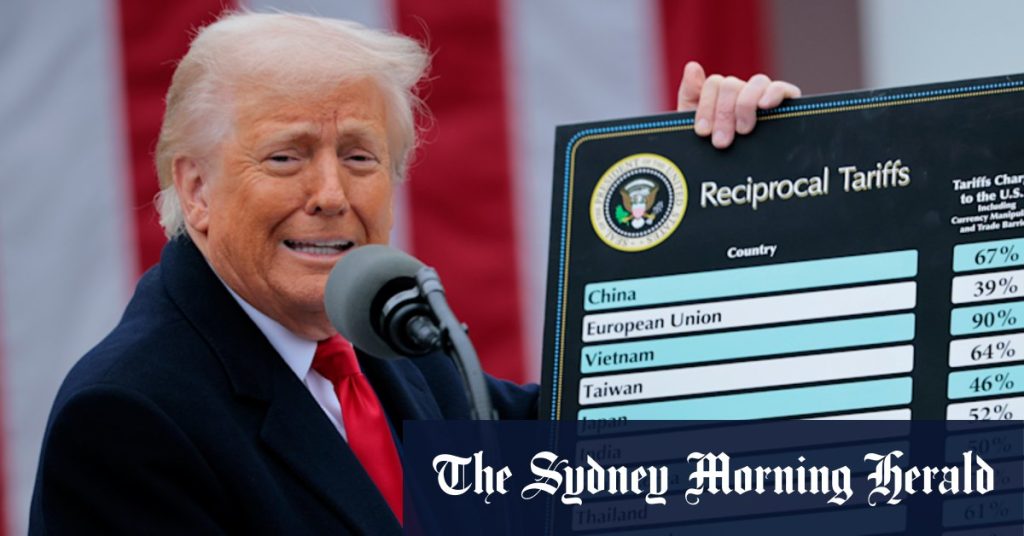Summarize this content to 2000 words in 6 paragraphs Yet the solution Trump proposes, if we decide to take him at his word, involves magical thinking both about how tariffs work and what the US can be. The vision of self-reliance in manufacturing and labour is eerily reminiscent of North Korea’s juche ideology, turning the US into a capitalistic castle that has to be talked into lowering its drawbridge occasionally, or paid to.Credit: Matt GoldingBut setting aside a web of relationships that took so much negotiation to build is not straightforward or painless, as US car companies struggling to come to terms with tariffs on their Mexican and Canadian suppliers will attest.This country may be a relatively minor player when it comes to US trade, but our investment in the global trade system is total, part of a long historical arc from protectionism in the years after Federation to the reforms of the Hawke-Keating era.The effects of Trump’s plans on China and our other Asian trading partners, many of them far more exposed than we are to the US market, will have inescapable economic consequences for us.So far, the voices of those – including former prime minister Paul Keating – who urge us to reconsider our security alliance with the US have been pushed to the margins.Anthony Albanese and his ministers have pointed to the dispute resolution mechanisms contained in our free trade agreement with Washington, signed in 2004, and the possibility of an appeal to the World Trade Organisation, while still holding out hope for talks. “Our preference is to negotiate directly and to try and resolve this,” is how Foreign Minister Penny Wong put it.If, as US Commerce Secretary Howard Lutnick has claimed in defending the tariffs, “talking is nonsense” and the only real answer is for nations to “change their ways”, presumably by jettisoning such “non-tariff trade barriers” as the GST and the Pharmaceutical Benefits Scheme, then whoever is elected to lead this country will face a more fundamental choice. In the words of our chief political correspondent, David Crowe, “a deeper debate would consider how Australia might change direction in a world changed by Trump”. And indeed we should.The fact is that tariffs and the entire edifice of MAGA are symbols of declining American power. It is inevitable to consider how that decline will reconfigure trade and politics globally, and a telling sign that major Asian powers are doing so came with the announcement this week by China, Japan and South Korea that they would be pushing ahead with deeper trade ties.If, as Trump surely hopes, he has created a new normal, we too will need to strengthen and deepen our other partnerships, as the federal government has signalled it will do.Those hoping Americans will wake from this trance and reject Trump’s snake oil solutions to their domestic woes may be in for a long wait.Start the day with a summary of the day’s most important and interesting stories, analysis and insights. Sign up for our Morning Edition newsletter.


